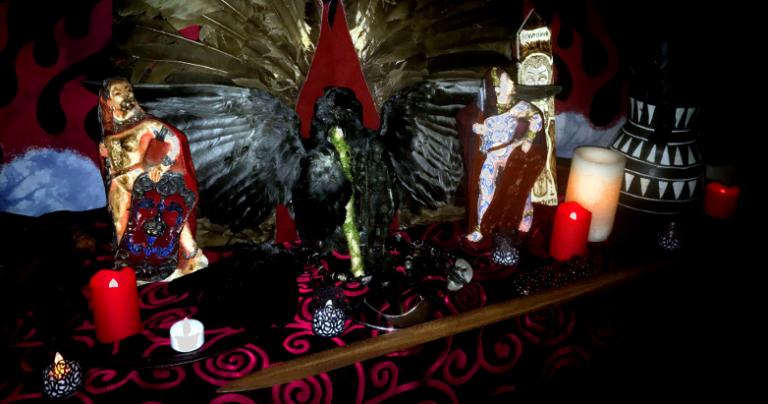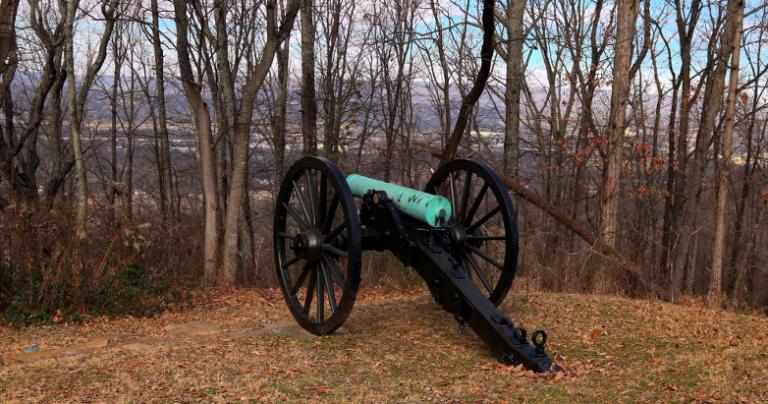“What does the Morrigan want with me? I’m not a warrior.”
I’ve heard that question multiple times over the past few weeks. The Morrigan – the Irish Goddess of sovereignty, of battle, and of the aftermath of battle – is one of the most active deities of our time. Apparently She’s on another recruiting drive. Or perhaps She’s just recruiting in my neighborhood this time.
When the Queen of Phantoms calls, it’s normal to be a little afraid. But I’m seeing people who aren’t afraid so much as they’re confused, who think the Great Queen must have made a mistake. People who aren’t physically imposing, who are conflict-averse, or who have family obligations that prevent them from taking risks. Surely the Morrigan is looking for someone bigger, stronger, younger, and faster. Surely She can’t be calling me, right?
Not necessarily. The Morrigan calls more than just warriors.

What is a warrior?
We need to begin by defining “warrior.” While the term properly applies to more than soldiers carrying weapons, our common society throws it around rather carelessly, attributing it to athletes, activists, and people with chronic diseases. The word denotes someone who is strong and noble, and so we often use it with people we admire, even though it doesn’t always apply to them.
Everyone struggles to get through life at one time or another – simply doing hard and unpleasant work doesn’t make you a warrior. Fighting is part of being a warrior, but any fool can fight. A warrior fights for a just cause, and because fighting is necessary. Not all fighting is violent or physical, but merely expressing an unpopular opinion doesn’t make you a warrior.
A warrior is someone who engages in conflict for the greater good, using whatever means is most effective. So the Morrigan may be calling you to fight with words or simply with your presence in a battle for what is good and right.
But She may also be calling you to Her service in a role that does not involve fighting.
Maybe you need to become a warrior
Let’s not overlook the most obvious possibility: perhaps the Morrigan is telling you to become a warrior.
The draft was abolished in the United States in 1973, seven years before it would have affected me. My older brother wasn’t so lucky. He joined the Navy rather than be drafted into the Army. Like millions before him, whether he was suitable for being a warrior was irrelevant. He was needed and so he was called into service.
In the era before professional armies, if your village was attacked, you fought. Young men have always been the prized warriors – as a rule, they’re bigger and stronger (and more reckless) than everyone else. But read the tales of our ancestors: when necessary, women, old men, and even children got caught up in fighting too.
Maybe you’re needed in a conflict in one form or another. The fact that you’ve never fought or that you don’t like fighting is irrelevant. The Morrigan is calling people to fight for sovereignty and for justice, and perhaps you just got drafted into Her army. Here’s a spear – the front lines are that way.
But perhaps not.
An army needs support staff
Warriors without arms and armor are easily defeated. Tanks and planes with no fuel are useless. Someone must train recruits, care for the wounded, and make sure everyone is fed. An army needs more than fighters – much more.
During World War I, two thirds of American service members were combat troops and one third were in support. During World War II, that was down to 40% combat and 60% support. By the Gulf War, it was 25% combat and 75% support. Most modern soldiers are not fighters.
The battle the Morrigan is fighting is not a literal war. She is not recruiting snipers or artillerymen. But those on the front lines of conflict – in the realms of politics, religion, culture, and the environment – need support every bit as much as those fighting with rifles and grenades. They need financial support, logistical support, emotional support, and spiritual support. There are many needs and many ways to fill those needs.
I am oathed to the Morrigan, but I am not a warrior. I did not promise to fight for Her. Instead, I promised to perform Her devotions, to tell Her stories, and to serve Her community.
If the Morrigan is calling you and you’re not a warrior, perhaps She needs you to support someone who is.
The Gods call who They call
Folkishness is the mistaken idea that only people of the “right” racial backgrounds can worship certain Gods. One of the many reasons it’s a bad idea is that it ignores the fact that the Gods can and do call whoever They choose to call, and sometimes those people are different colors and speak different languages.
This is just as true when it comes to function as it is with race or nationality. The Gods call who They call, for Their own reasons – and sometimes those reasons aren’t particularly clear. The Forest God calls city dwellers. Smith Gods call people who haven’t made crafts since kindergarten. Trickster Gods call people who are neat and orderly (though thankfully, They’ve left me alone).
And the Battle Goddess calls people who aren’t suited for fighting.
Why? I don’t know. I suspect the fact that the Gods are whole persons and not merely functions has something to do with it. But if the Morrigan is calling you, you can be sure She has a good reason, even if you can’t see what that reason is. Your challenge is to figure out how best to respond.
The Morrigan is still a Battle Goddess
The Morrigan is a whole person and She calls people who aren’t warriors to Her service. But that doesn’t mean She’s a nurturing Mother Goddess… or a Sex Goddess. You may not be a warrior, but She is, ever and always. Do not project your own personality or desires onto Her.
And do not expect that you will be far from the conflict. You may carry a book instead of a sword or a medical kit instead of a shield, but you will have a part to play in Her campaign for sovereignty (and whatever else She’s fighting for, about which I have much speculation and little hard data). You may not go to the battle, but sooner or later the battle will come to you. Following the Morrigan can be inspiring and fulfilling, but it is never, ever safe.
Here is the call – how will you respond?
Perhaps the Morrigan is calling you to become a warrior. Perhaps She’s calling you to a supporting role. But if She’s calling you, the primary question is how you will respond.
Last year I wrote When You Hear The Call of The Morrigan to provide a guide for responding. You may want to read that post.
Read The Morrigan – Meeting the Great Queens by Morgan Daimler, and then read The Book of the Great Queen by Morpheus Ravenna. Begin a devotional practice. Find your place. Share your experiences. And stay on the battlefield.
My own experiences with the Morrigan have been challenging and at times unpleasant. But they have been some of the most fulfilling and rewarding parts of my life. If the Great Queen is calling you, I encourage you to answer.
Even if you’re not a warrior.

















